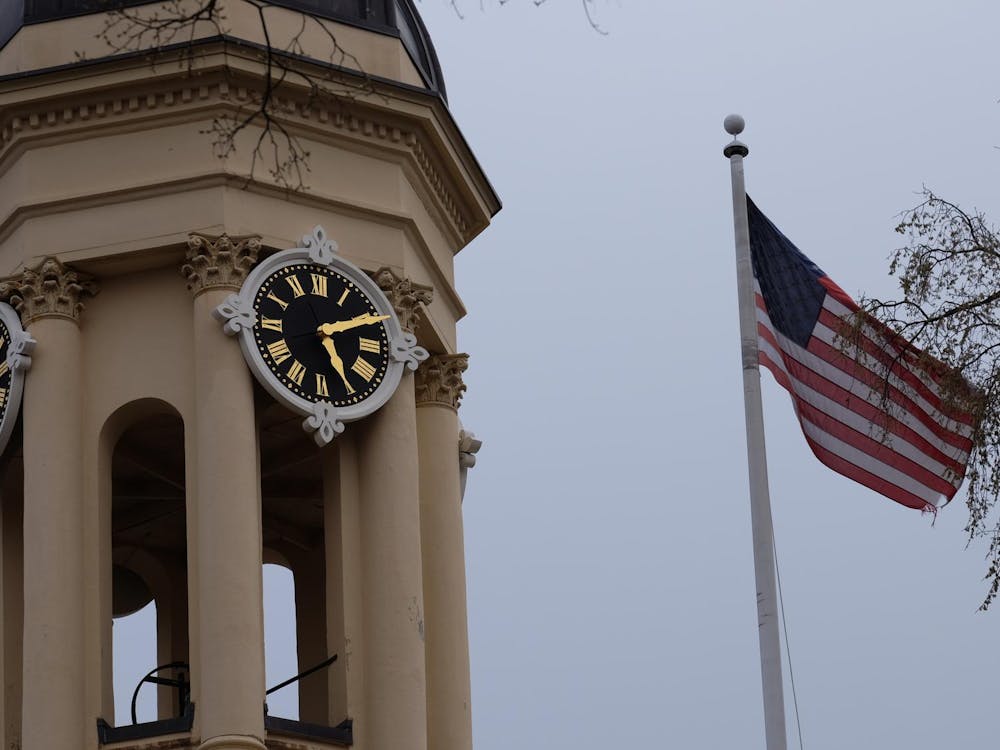A few weeks ago, a student was quoted in the Harvard Crimson calling a report on grade inflation “soul-crushing.” In the article, students — mostly freshmen — are daunted by the implications of a more rigorous grading system. Students were worried that their hard work might not always translate into an A-range grade (which, for Harvard students, occurs nearly 80% of the time).
I myself have been upset about a bad grade — on Sunday, I received a disappointing grade on a midterm essay I worked for hours on. But too many times have I heard stories about my peers bursting into tears during office hours, begging for a B+ to be raised to an A-, or wrangling with professors after precepts to explain why they ‘deserve’ a higher grade on an assignment.
Princeton’s grading seems punishing in comparison to Harvard’s, so much so that the Crimson’s Editorial Board makes it the butt of their joke in their piece: “Princeton students seem to be faring just fine,” they wrote in a recent column.
While it’s easy to make fun of Harvard for being easier than Princeton, a culture of academic perfectionism still clouds the words of any conversation about grading at either institution. For institutions like Princeton and Harvard — that will inevitably produce part of the next crop of leaders around the world — it is imperative that students are truly prepared and willing to face critique, hardship, and even failure. That starts with a grading philosophy that doesn’t immediately equate high performance with high effort. But it also involves rejecting a culture of academic perfectionism that places our self-worth hand-in-hand with a class grade.
Institutions like Princeton and Harvard house some of the most talented young minds in the country. Many of us will indubitably enter into professions or hold powerful roles that will help shape the nation’s politics, law, and public discourse.
In a world where high academic performance is reduced to a credential that parallels our self-worth, though, it’s easy to berate ourselves and catastrophize over what we take to be personal failures. Academic perfectionism is a prerequisite for self-worth — it justifies, we feel, our presence here. If we receive anything other than an A, we feel as though we were wronged — because effort and hard work have become a mistaken shorthand for excellence.
A culture that incentivizes this type of negative thinking — combined with a grading system like that of Harvard’s — prepares us poorly for the failures we will undoubtedly encounter in our future. After graduation, some of us might go on to write books that are unexpectedly controversial, draft policies for hours only for them to eventually fail, or drop a developing petri dish integral to a research paper.
Our discomfort makes us averse to growth and change, and most importantly, accountability. Like an authoritarian dictator who crushes all dissent in the name of political preservation, we become allergic to anything that suggests any possibility of inadequacy. Authoritarianism demands the limitation of any kind of opposition to a central power. But only through a willingness to hold ourselves accountable can we accept opposition with grace. When we’ve been conditioned to see any failure as a parallel representation of our inherent deficiencies, any kind of critique is bound to be taken as a personal attack.

This is not to say that things like grade inflation or perfectionism produce authoritarianism, or that caring about a bad grade makes you a fascist. It’s more to say that academic perfectionism can dull our ability to recognize our own authoritarian tendencies because together they share a flawed reasoning that faultlessness reflects one’s value.
But when we condition ourselves to view academic accomplishment as a given based on hard work, we risk falling into the same pattern of thinking with our future professions. A position in local office becomes a reward for hard work, instead of a public-facing role where addressing disagreement, scrutiny, and shortcomings should be baked into the position. A role at a lab, a newsroom, or a firm becomes something we are entitled to as opposed to a place where failure is both possible and instructive.
While grade inflation and perfectionism might not directly create authoritarians, they can create graduates who struggle to hear that they are wrong and conflate any form of critique with a personal attack. If we cannot tolerate being imperfect on our transcript, surrounded by those who want to help us grow, how will we handle being wrong when the stakes are higher?
Siyeon Lee is a junior associate Opinion editor from Seoul, South Korea, majoring in History. She can be reached at siyeonlee[at]princeton.edu.









